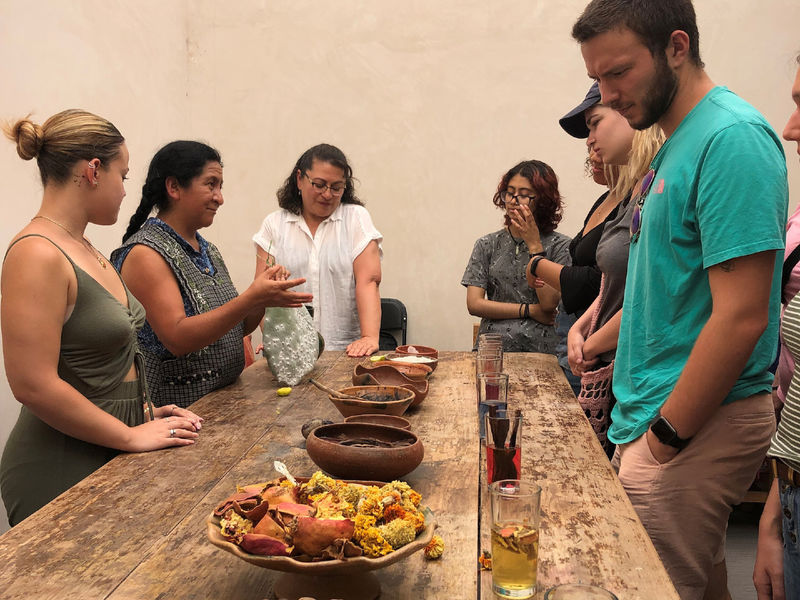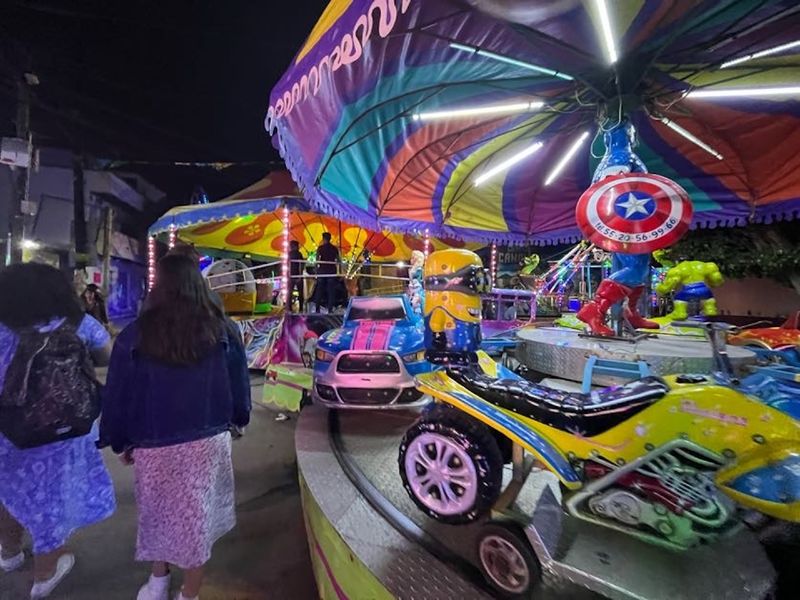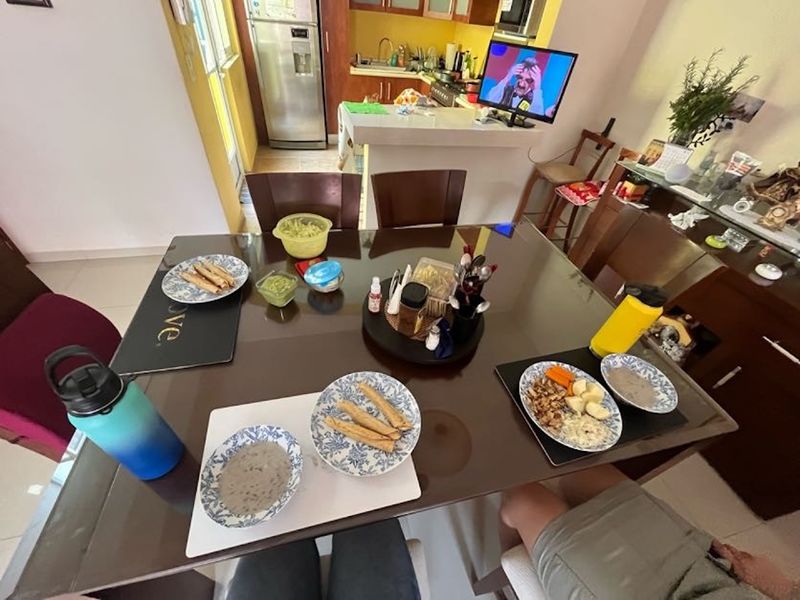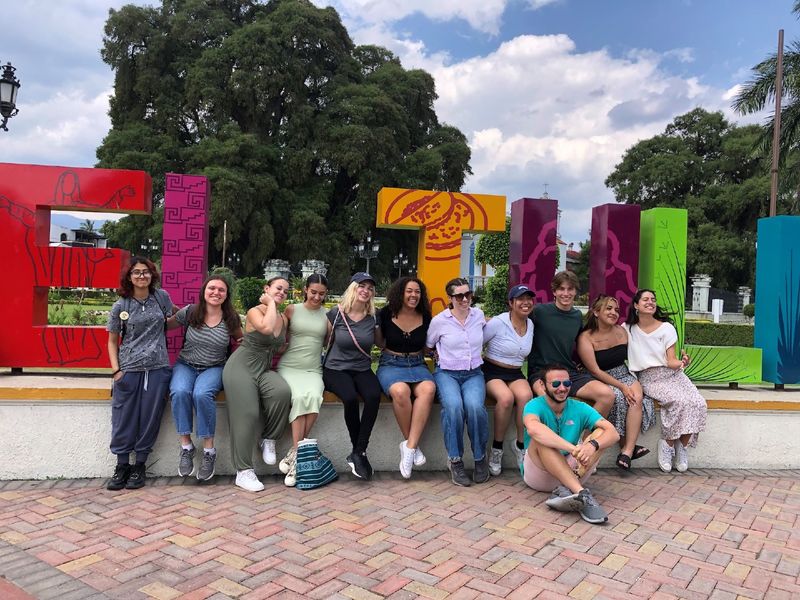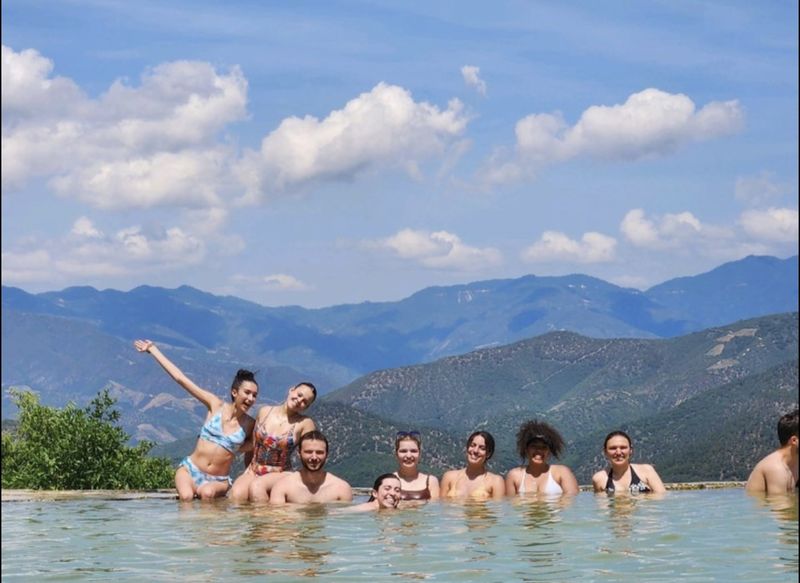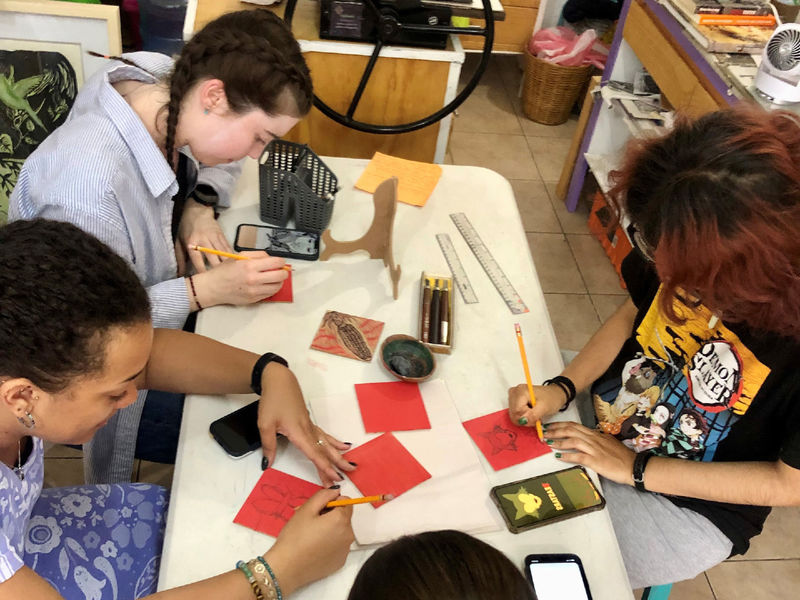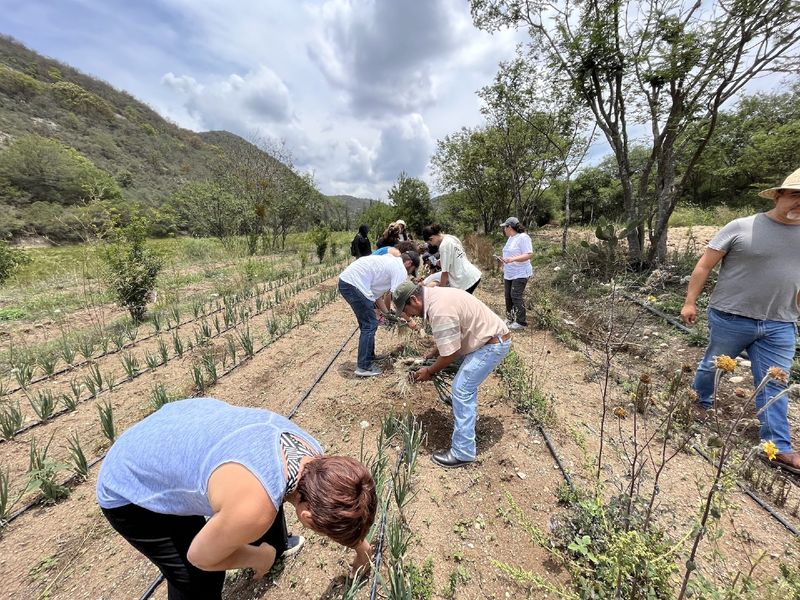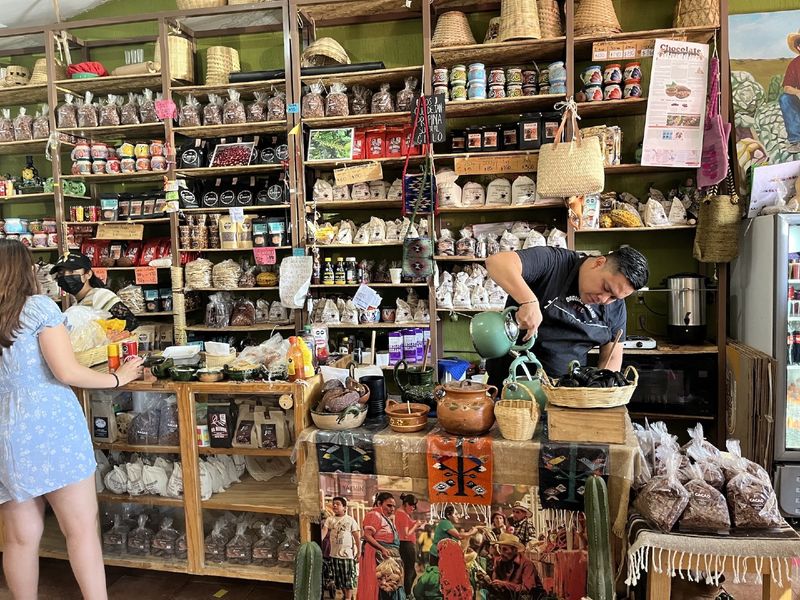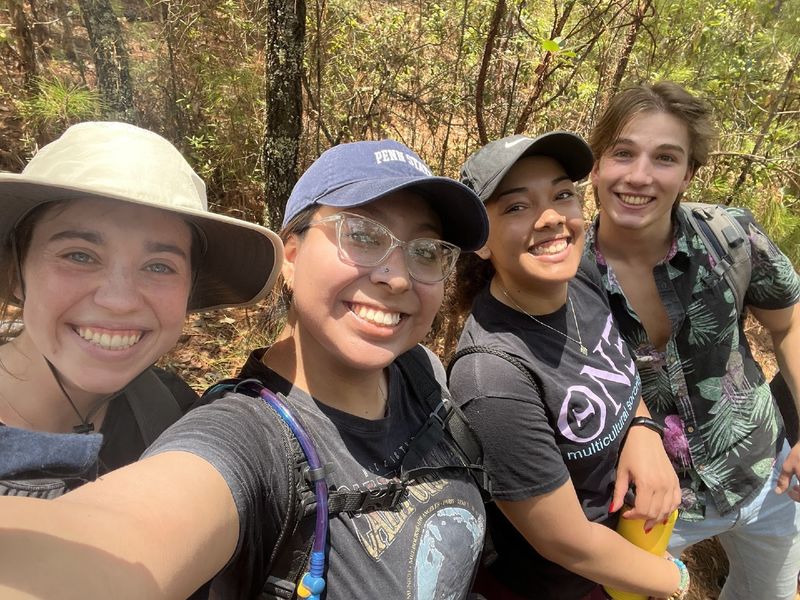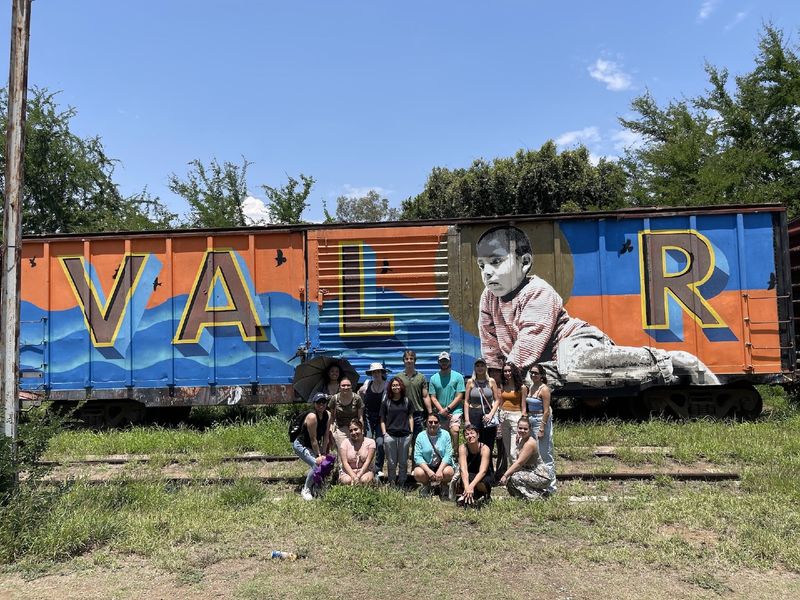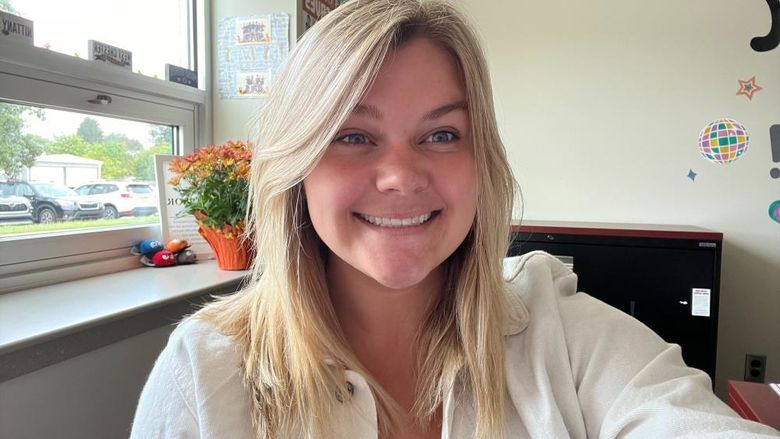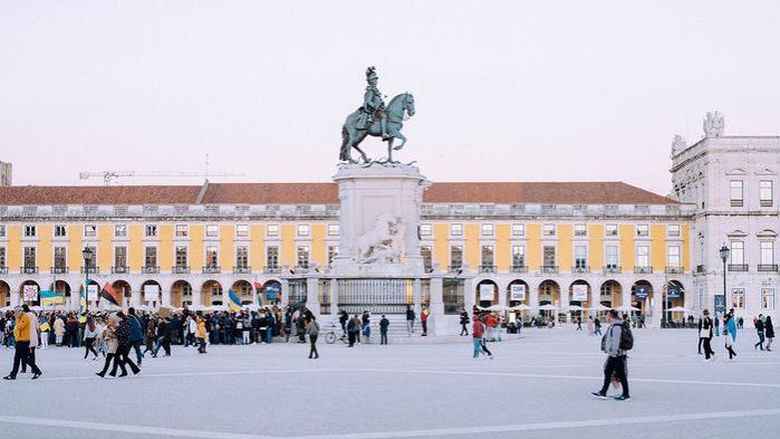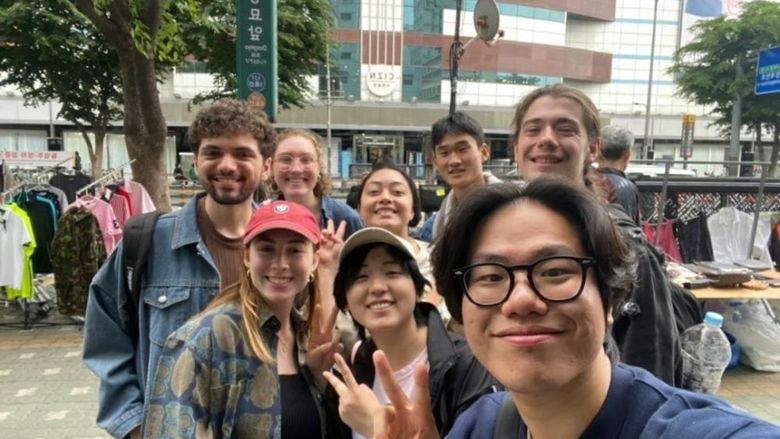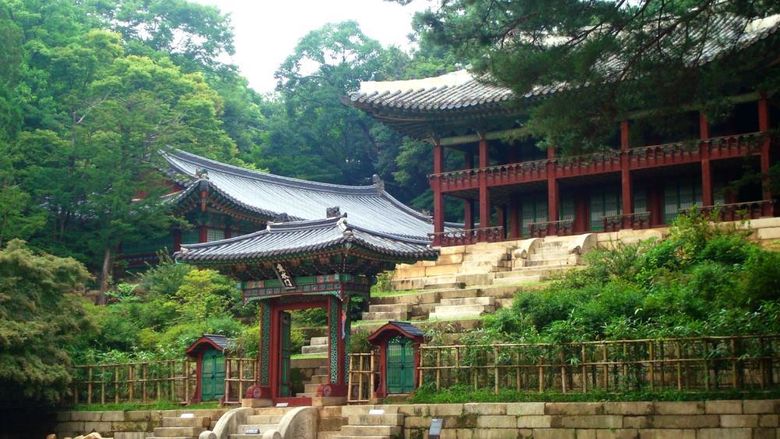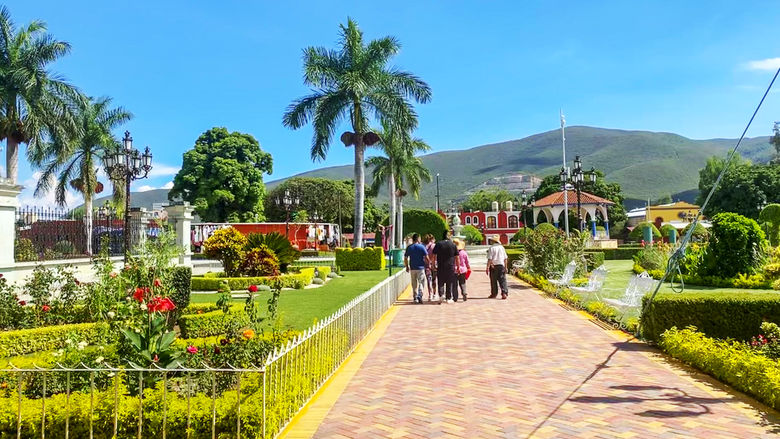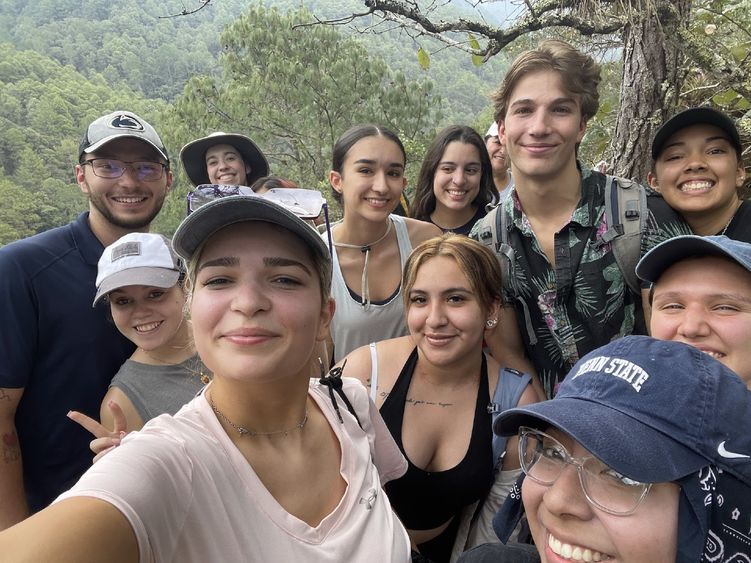
On their Maymester trip to Oaxaca, Mexico, Penn State students went on a variety of excursions, including hiking along nature trails.
MEDIA, Pa. — Twelve Penn State students had the opportunity to travel to Oaxaca, Mexico, for "Maymester in Mexico: Language, Culture & Community," a four-credit study abroad program designed by faculty in the College of Education in partnership with Penn State Brandywine and the Universidad Autonóma Benito Juárez de Oaxaca. In the program, students spent three weeks in May and June immersing themselves in the Oaxacan culture and the Spanish and Indigenous languages of the region.
The program also collaborated with Ollin Tlahtoalli, a community-based organization in Oaxaca that offers cultural and language instruction for students coming from abroad.
Daniela Martin, associate professor of psychology at Brandywine and one of the faculty leaders of the program, said the trip to Oaxaca was a great opportunity for Penn State students to learn about cultures different from their own.
“As a professor, it brings me great joy to facilitate student experiences that center on learning about global issues in a ‘hands-on’ manner: visiting locales, learning from community leaders, collaborating with universities and non-profits,” she said.
"As a professor, it brings me great joy to facilitate student experiences that center on learning about global issues in a ‘hands-on’ manner."—Daniela Martin , associate professor of psychology, Penn State Brandywine
“We help Penn State students join other young people discuss what affects their communities, consider working solutions and barriers, and the tools required to make a difference. Our program provides the first steps to becoming a mindful young person that can orient themselves in a complex global environment, such as learning a foreign language ‘on the go,’ living with local families and figuring out the daily customs and how to ‘repair’ situations once a mistake is made, and crucially, considering how one is viewed through the lens of another culture and another set of values and priorities.”
The program was open to students from all majors who are second-year students and above. Because of this, the faculty leads structured the course in a way for students to design and complete an ethnographic research project of their interest. This year, students studied topics including water sustainability, traditional medicine, disability services in Mexico, family values, arts and feminism, and others.
“Students would often discuss their topics together, share what they discovered through interviews with experts and community members, and brainstorm next steps. This way, some course content is organically generated by the students, and we all learn together about topics we have not considered before,” Martin explained.
“This is a reflection of the principles underlying our entire program: collaborative learning, discovery, and an environment in which all voices and ideas are considered and supported, to facilitate meaningful social change.”
McKenna Loney, a third-year plant sciences major who just transitioned from Brandywine to University Park, said that she wanted to study abroad in Oaxaca to get immersed into a different culture.
“I wanted to go to Oaxaca not only just to immerse myself into a new culture but to also go to a whole new place,” she said. “I really enjoyed how the trip allowed us to learn in a fun way through all the excursions we went on. We did so much in just over three weeks.”
Many of the excursions took place outdoors. Students spent time on hiking trails, farms, ecotourism sites and the communities in central Oaxaca. Students also were able to check out Zocalo, a shopping center that caters to tourists.
“One of the leaders of Ollin, named Omar, taught our lectures and took us on tours of Oaxaca. We learned so much from him,” Loney said. “It was really eye-opening. We learned about Oaxaca’s native plants and how they were interconnected to the ecosystem which, as a plant sciences major, was really cool. We also talked about food scarcity and gentrification. We see it in many places around the United States, but getting to see it in a different country and a different context was really eye-opening.”
Loney added that her favorite excursion was to Teotitlán del Valle, a woman-owned weaving cooperative in one of Oaxaca’s Indigenous communities.
“They source their wool sustainably and make all-natural dyes out of plants, bugs and other parts of nature,” she recalled. “It was a really enlightening process and very inspiring.”
“I really enjoyed how the trip allowed us to learn in a fun way through all the excursions we went on. We did so much in just over three weeks.”—McKenna Loney , third-year, plant sciences student, Penn State University Park
Loney said her favorite part of the whole experience, though, was immersing herself into Oaxacan culture through her host family and "intercambios" (translates to “exchange students” in Spanish).
“I really enjoyed the opportunity to work with our intercambios. It was cool because we were able to talk to each other about our cultures, and we found that we have so many similarities,” she said. “Whenever we had free time, they would take us around Oaxaca so we could connect with the locals and eat different street foods.
“It was such a wonderful, intimate experience to stay with a host family. My host mom, Delfina, and my roommate Sunshine, who was also in the Maymester program, made the experience a lot more personable than staying in an apartment or dorm," said Loney. "Delfina created this safe haven and respected our boundaries. She would ask me questions about how my classes went that day and helped me learn more Spanish. Through the Spanish classes I took and staying with my host family, I was able to hold basic conversations and got to connect with her.”
When asked what advice she would give to students who want to study abroad, Loney said to do it if you’re able to get the funds.
“It’s a great chance to have fun and learn in a different place.”—McKenna Loney , third-year, plant sciences student, Penn State University Park
“Penn State offers so many scholarships to study abroad so students can study abroad during their college experience. If you’re able to get those funds, definitely do it,” she said. “It’s a great chance to have fun and learn in a different place.
“It really allows you to broaden your horizons. Whether it’s through simple interactions you have with someone from a different culture or just immersing yourself in a completely different space, you’ll find similarities between your culture and the place you’re visiting," she added. "At the same time, it also allows you to embrace those differences and similarities. It offers an opportunity for you to reflect on yourself as an individual. If you can take the opportunity, do it.”
